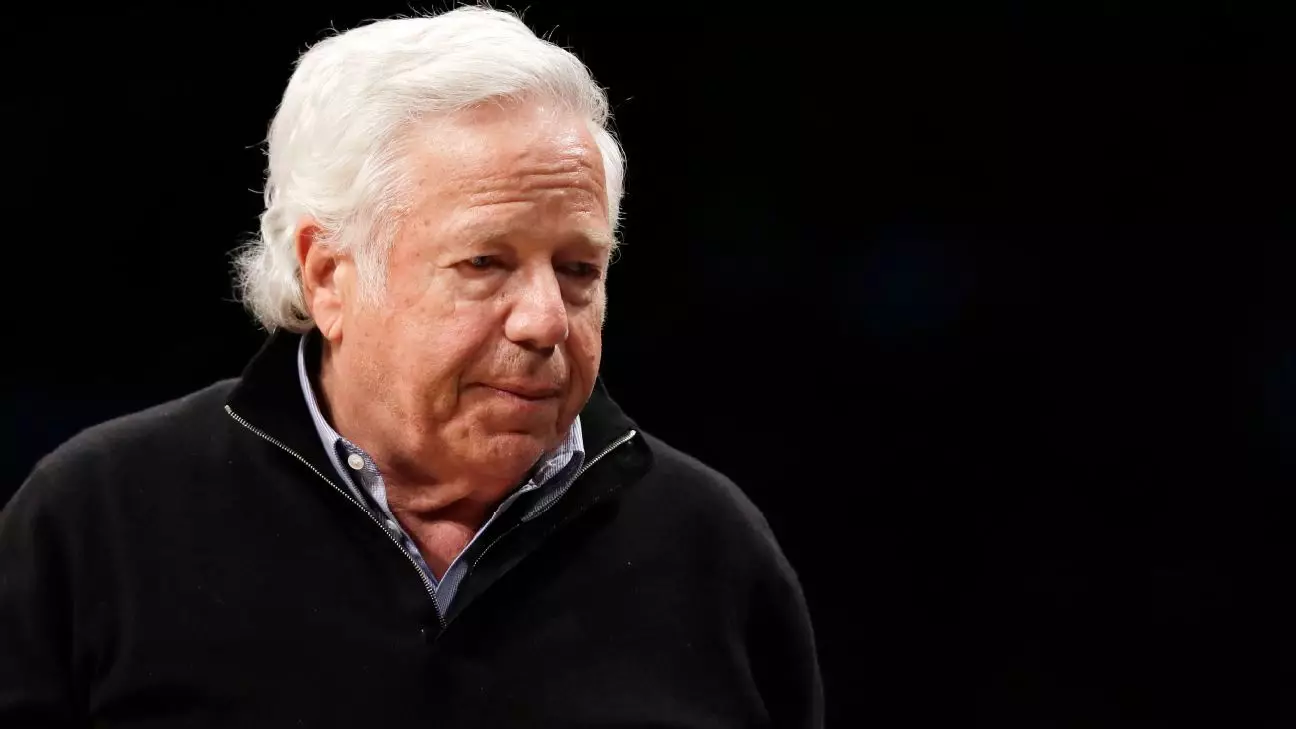The Pro Football Hall of Fame remains a revered institution in American sports, celebrating the pinnacle of achievement in professional football. This legacy, however, is often marred by contentious decisions and debates surrounding who deserves to be enshrined. One of the latest controversies centers around Robert Kraft, the principal owner of the New England Patriots, who has once again been overlooked by the Hall’s contributor committee. This raises significant questions about the criteria for nomination and the implications for players, contributors, and the integrity of the Hall itself.
Robert Kraft, celebrated for steering the Patriots to six Super Bowl victories, was anticipated to be a strong candidate for the 2025 Hall of Fame class. Yet, for the thirteenth consecutive year, Kraft’s name has not advanced beyond the contributor committee. This year, the committee made the decision to elevate Ralph Hay, a co-founder of the NFL and owner of the Canton Bulldogs in the early 1920s, instead of Kraft. This choice was met with surprise and disappointment among many NFL historians and stakeholders, who have expressed their conviction that Kraft is more deserving of induction given his substantial contributions to the league’s modern success.
Kraft’s situation highlights the committee’s somewhat opaque selection process. Voters must approve a nominee by an 80% majority, yet the definitive standards for what constitutes “significant contribution” can seem disparate and subjective. In this case, the committee’s choice to honor Hay—a figure relatively obscure to the average fan—forebodes a potential disconnect with contemporary NFL audiences. Critics argue that celebrating historical figures like Hay should not eclipse the contributions of more recognizable—and arguably more influential—figures in the sport’s illustrious history.
Ralph Hay is undoubtedly a pivotal figure in NFL history. His role in organizing the first meeting that led to the formation of the American Professional Football Association (the precursor to the NFL) is an essential part of the league’s narrative. Historians contend that without Hay’s vision and leadership, the structure and success of the NFL as we know it today might not exist. Nevertheless, the current context begs a question—should the Hall prioritize historical figures who laid the groundwork for the league or contemporary figures who have shaped its trajectory in recent decades?
While Hay was a foundational player in the establishment of the NFL, his brief ownership stint and ambiguous views on player compensation paint a picture that is perhaps less favorable today. Crafting a legacy involves recognizing the boundaries of an individual’s impact. Gratuitously glorifying early figures at the expense of modern-day titans like Kraft risks ignoring the operational and economic complexities that define today’s football landscape.
Kraft purchased the New England Patriots in 1994, and under his stewardship, the franchise transformed into a model of excellence within the league. His pivotal hiring of Bill Belichick in 2000 initiated one of the most successful coaching-tenure partnerships in sports history, culminating in an unprecedented six Super Bowl victories from 2001 to 2018. Beyond just wins and losses, Kraft played a crucial role in amplifying the NFL’s global popularity through various business strategies and fan engagement initiatives.
The sustained campaign for Kraft’s induction, spearheaded by team spokesperson Stacey James and backed by prominent figures like Hall of Famer Bill Polian, underscores the collective desire for recognition among his peers and fans alike. The public sentiment surrounding Kraft’s candidacy points to a need to redefine the yardsticks for evaluating contributions to professional football—making it less about the era one comes from and more about the impact one has made in the context of their time.
As the NFL moves forward, it is essential for the Hall of Fame to adapt its criteria to reflect the evolving nature of the sport. The divergent paths of Ralph Hay and Robert Kraft serve as a lens through which we can examine broader societal developments regarding recognition, equity, and legacy. It is vital for the selection committee to engage with current and former players, team owners, and fans to establish a more cohesive understanding of what “contribution” truly means within the context of a multi-faceted and dynamic league.
Ultimately, while the nomination process for enshrinement is steeped in tradition, it is crucial to ensure that the narratives we honor are reflective of the entirety of pro football. Emphasizing both foundational figures and modern-day icons ensures that the Hall of Fame remains a well-rounded museum of the sport’s legacy and continues to inspire future generations of football players and fans alike.


Leave a Reply